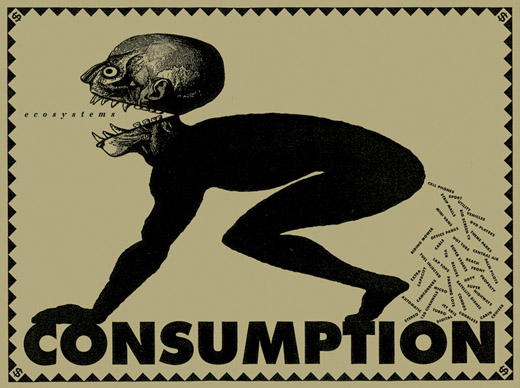 In his book Two Ages, which is superficially a review of a Thomasine Gyllembourg novel with the same name, Kierkegaard examines the political and social dissimilarities between the Romantic period and the modern period.
In his book Two Ages, which is superficially a review of a Thomasine Gyllembourg novel with the same name, Kierkegaard examines the political and social dissimilarities between the Romantic period and the modern period. ‘‘The present age is essentially reasoning, reflective, passionless, fickly flaring up in enthusiasm and shrewdly resting in indolence’’ (Kierkegaard, 1846/1978, p. 64).
In particular, Kierkegaard critiques such communicative activities as chatter, everyday talk, the press, and the commodification of discourse. Each of these activities is involved in the process Kierkegaard calls leveling. Kierkegaard presents an understanding of how communication activities can create—and individuals can put on—a culturally accepted, but objective, socially constructed definition of self. According to Kierkegaard, this process of leveling leads to objectivity and personal irresponsibility.
Leveling takes individuals out of themselves and makes them part of the public, which for Kierkegaard is an abstraction. Through the continual comparison of selves to others, we create and develop secondhand needs, desires, and definitions of selfhood—of who and what we are to be (Kierkegaard, 1847/1993).
‘‘The trend today is in the direction of mathematical equality, so that in all classes about so-and-so many uniformly make one individual’’ (Kierkegaard, 1846/1978, p. 85).
 Kierkegaard is charging that unreflective communicative processes create a homogeneous abstraction—the public—where all socialized persons become interchangeable and where no one lives as an individual. Thus, one becomes a mere representation of a type, or a follower of an ideology, a part of the crowd.
Kierkegaard is charging that unreflective communicative processes create a homogeneous abstraction—the public—where all socialized persons become interchangeable and where no one lives as an individual. Thus, one becomes a mere representation of a type, or a follower of an ideology, a part of the crowd.Through leveling, the individual accepts society’s monological definitions of one’s self. Kierkegaard claims that rather than enabling people to take personal responsibility for their lives, the modern way of life makes it difficult to be anything other than conformists. The individual:
‘‘forgets himself, forgets his name (in the divine understanding of it), does not dare to believe in himself, finds it too venture- some a thing to be himself, far easier and safer to be like the others, to become an imitation, a number in a crowd’’ (Kierkegaard, 1849/1980, pp. 166–167).
 According to Kierkegaard, most people in modernity merely reflect the norms and attitudes of the social world into which they happen to be thrown. In the modern age, individual feelings of self-worth and personal identity are based upon the socially accepted criteria of comparative worth. One distinctive modern day dilemma, the constant comparison with our neighbor’s material goods called ‘‘keeping up with the Joneses,’’ can be viewed as one example of leveling.
According to Kierkegaard, most people in modernity merely reflect the norms and attitudes of the social world into which they happen to be thrown. In the modern age, individual feelings of self-worth and personal identity are based upon the socially accepted criteria of comparative worth. One distinctive modern day dilemma, the constant comparison with our neighbor’s material goods called ‘‘keeping up with the Joneses,’’ can be viewed as one example of leveling.Looking at the Joneses is merely an expression of what our culture tells us we are supposed to have. When we don’t “have” what our culture determines what we are supposed to have the discourses become the discourses of lack. Rather than finding fulfillment, these discourses press upon us. “I should have…” “I want…” I need…”
We find ourselves frustrated, incomplete, unsatisfied. We are looking not at inner growth, or inner strength, but outside of ourselves. Again we find lack. Rather than questioning the concept of conspicuous consumption and the critically looking at the entire operation of these discourses imposed upon us by society, we turn inward and against ourselves.
As Kierkegaard wrote,
"The human being compares himself with others; the one generation compares itself with the other and thus the heaped-up pile of comparisons overwhelms a person. As the ingenuity and busyness increase, there comes to be more and more in each generation who slavishly work a whole lifetime far down in the low underground regions of comparison" (Kierkegaard, 1847/1993, p. 189)

No comments:
Post a Comment